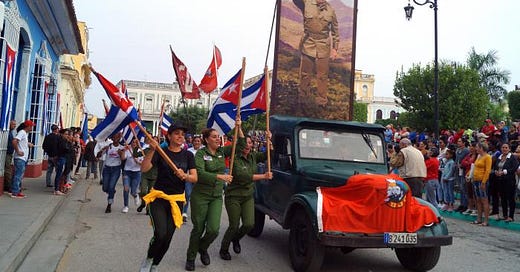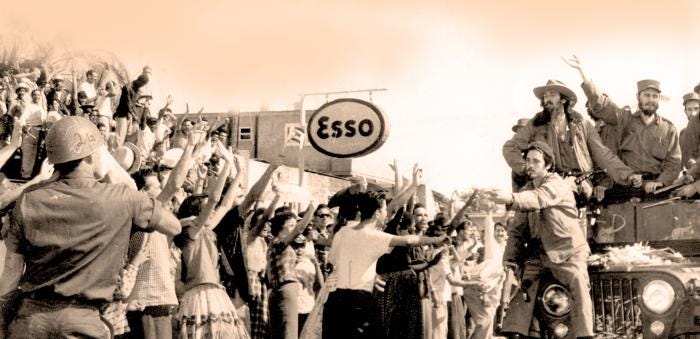Caravan of Freedom arrives in Havana
Cuba commemorates a glorious moment in the world anti-imperialist struggle
On January 1, 1959, the Rebel Army occupied Santiago de Cuba without resistance from Batista’s troops, in accordance with an agreement between their commander and Fidel. From Parque Céspedes in the heart of Santiago de Cuba, Fidel declared the triumph of the Revolution. Meanwhile, Rebel Army troops under the command of Che Guevara and Camilio Cienfuegos moved west toward Havana, without encountering resistance.
With the flight of Batista in the early morning hours of January 1, important political actors in the nation were working to convert the revolutionary triumph into a coup d’état, seeking to create a situation that they could control. In response, Fidel put forth the slogan, “Coup d’état, No! Revolution, Yes!” Fidel was also concerned with preserving the unity of the triumphant Revolution, mindful that divisions had frustrated the revolution in previous moments of triumph in Cuba in 1878 and 1898. Fidel was anxious to get to Havana to deal with these threats.
…



